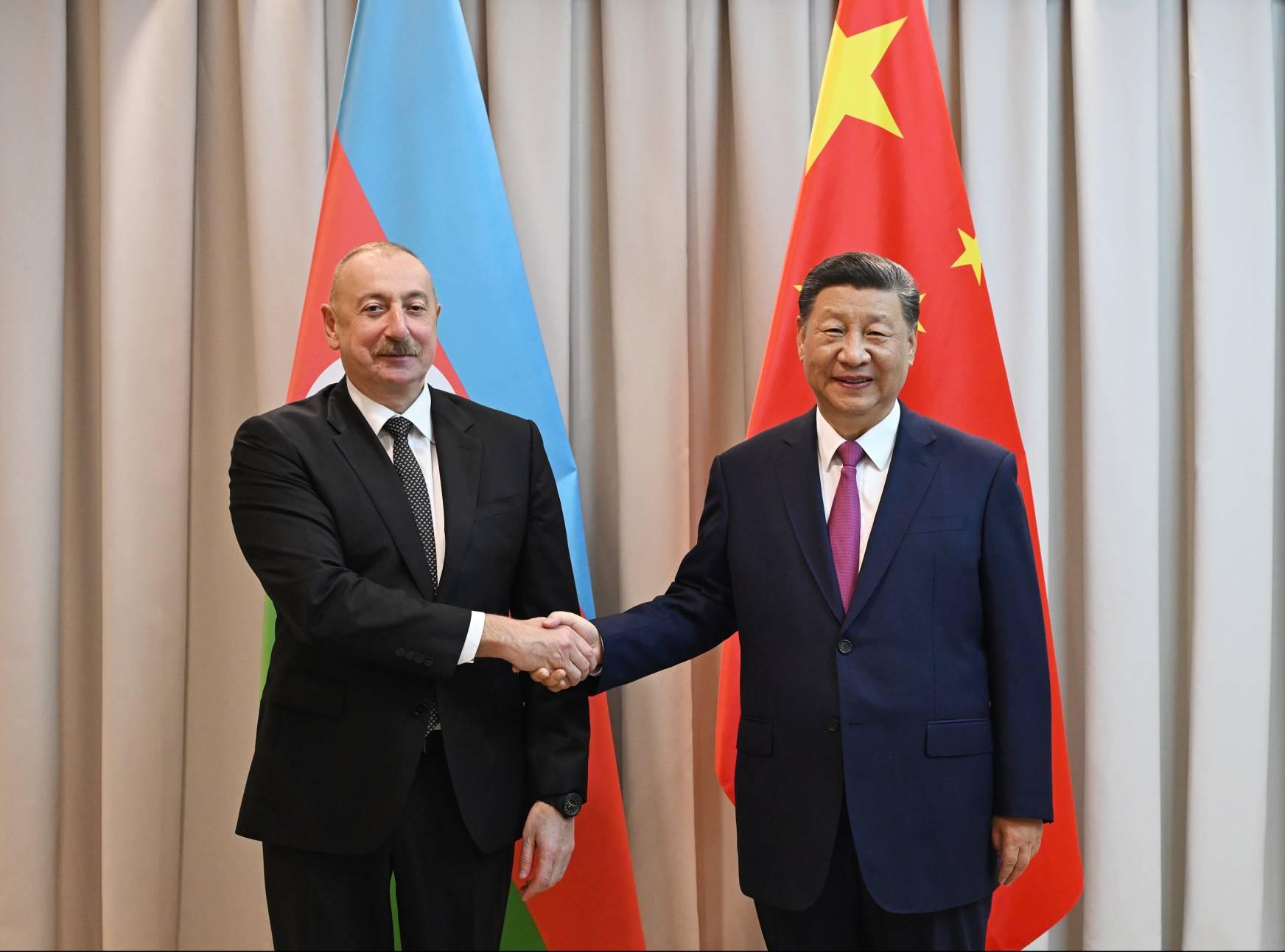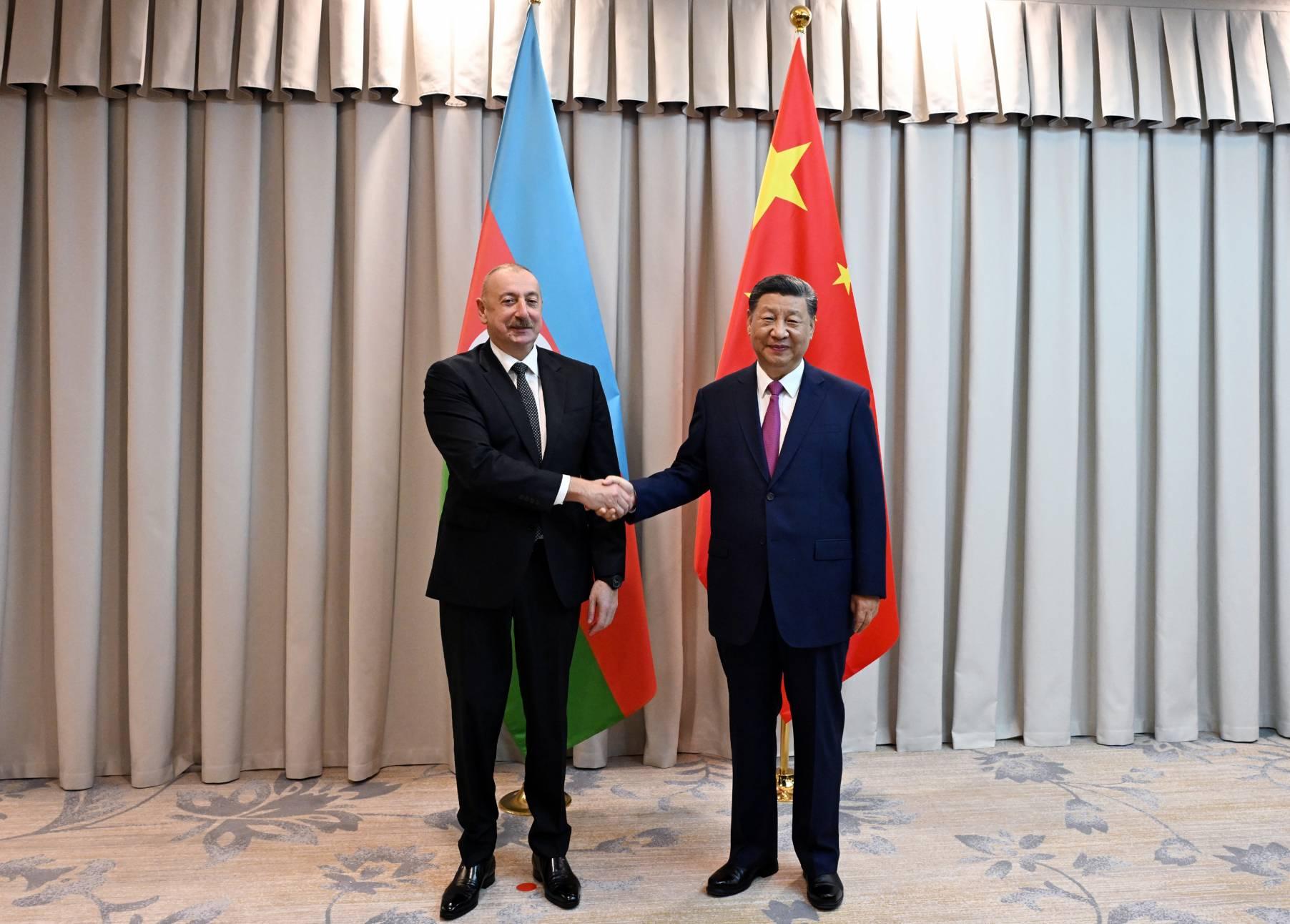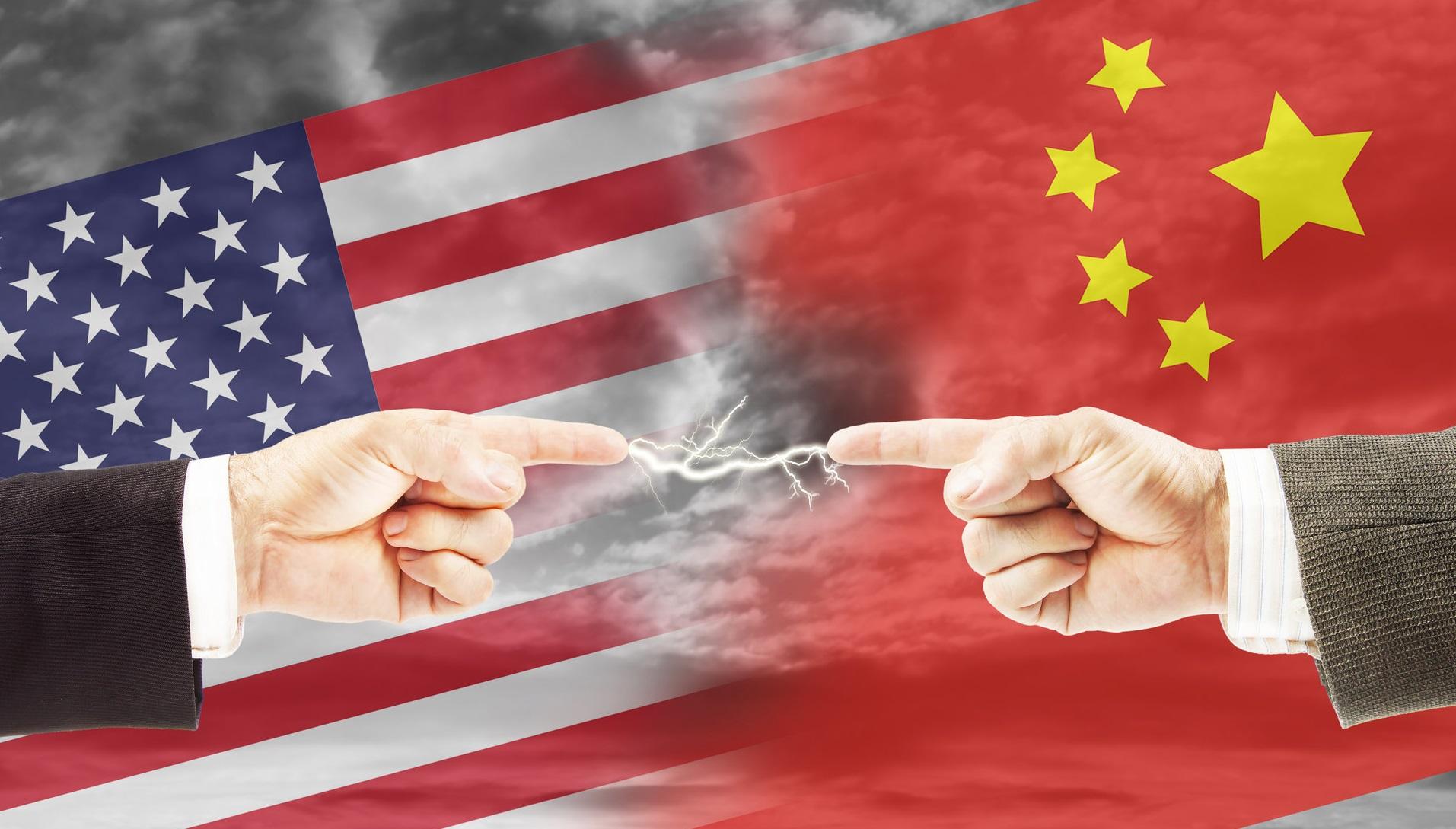Azerbaijani-Chinese partnership defies "first among equals" attitudes Rising above geopolitical cynicism
Undoubtedly, the meeting of experts from Azerbaijan and China on military education, held on July 23 at the National Defense University, takes on special significance in light of the "Joint Declaration on the Establishment of a Strategic Partnership" signed between Baku and Beijing during the SCO summit in Astana.
As emphasized in the document, in the context of the "tectonic and complex development of international and regional situations," the parties highlighted the expansion of cooperation in almost all areas, including strengthening interaction "in international affairs" and jointly defending "common interests," including the joint promotion of "regional and global peace." Considering the Declaration's affirmation of Azerbaijan and China's readiness to maintain "close contacts and coordination on the most important issues of national, as well as regional and global security," the meeting with the delegation from the Academy of Military Sciences of the People's Liberation Army of China takes on a special significance.
However, it is clear that any strategic partnership is fueled by mutual understanding among the citizens of the countries and the special relationships between their leaders. In this context, the mutual respect between Azerbaijani President Ilham Aliyev and Chinese President Xi Jinping is well known.
In his congratulatory message to Aliyev on the occasion of Azerbaijan's Independence Day this May, Xi Jinping emphasized the "dynamic development in Chinese-Azerbaijani relations of friendship and cooperation." He noted that this trend contributes to strengthening political mutual trust, deepening cooperation within the framework of the Belt and Road Initiative, and fostering close interaction on the international stage. Xi Jinping also expressed his readiness to "make joint efforts with you to deepen cooperation between the two countries in various areas and advance bilateral bonds to a new level."

During the bilateral meeting on the sidelines of the SCO session in Astana, Xi Jinping referred to China and Azerbaijan as "good friends and good partners, grounded in equality." Ilham Aliyev, emphasizing mutual support "international institutions, the expression of support for the territorial integrity and sovereignty of our countries," provided data on the increase in trade turnover between Baku and Beijing to $3 billion, the opening of trade houses in six Chinese cities, and the growth of exports from China to Azerbaijan, after which he spoke about the prospects for investment cooperation.
In this context, it is appropriate to recall Ilham Aliyev's interview a year ago with the Chinese media corporation China Media Group, during which the correspondent warmly referred to the national leader Heydar Aliyev as the "founder of Chinese-Azerbaijani friendship." He noted that "in addition to the official agenda" of Heydar Aliyev's visit to China, he "would visit every Chinese family to check out the lives of everyday Chinese people. He met with primary school kids, visited the Chinese countryside." Ilham Aliyev, thanking the Chinese journalist, also noted that Heydar Aliyev's visit to China and "meetings with the Chinese leaders actually created the framework for our cooperation," becoming the basis for the special spirit of mutual understanding at the current historical stage. Incidentally, it was in that interview that the President of Azerbaijan emphasized how impressed he was with Xi Jinping's vision, intellect, openness, and deep understanding of Chinese-Azerbaijani relations, "China as a global power has very broad foreign policy agenda, much broader than one of Azerbaijan’s." "We can only applaud," said Aliyev, what the Chinese leader is “doing in developing his country, in providing assistance to those who need this assistance."

Today, China has indeed become a powerful geopolitical force, pursuing a peaceful policy in all directions. Just recently, representatives of Hamas and Fatah, during a meeting in Beijing with Chinese Foreign Minister Wang Yi, signed a statement "on ending the conflict between the organizations and restoring Palestinian unity under the leadership of the PLO." According to various sources, this involves the parties reaching a "general agreement on cooperation and accepting the PLO as the basis for creating a national government to govern the West Bank and Gaza Strip."
Following this, Ukrainian Foreign Minister Dmytro Kuleba arrived in China and also held talks with Wang Yi, who reaffirmed Beijing's strong commitment to supporting a political resolution to the Russian-Ukrainian crisis. Wang Yi noted that the "four necessities" proposed by Chinese President Xi Jinping serve as an important guide for addressing the issue.
Consequently, China and Brazil published a six-point Consensus on Political Settlement, which includes "three principles" for de-escalating the situation, "three important elements" regarding peace negotiations, and "three concerns" related to humanitarian aid. According to Wang Yi, Ukraine and Russia have recently "signalled varying degrees of readiness for negotiations."
Although the conditions and timing are not yet ripe, China supports all efforts to achieve peace and is prepared to continue playing a constructive role in ceasing fire and war and resuming peace talks. According to Chinese sources, Dmytro Kuleba highly praised "China's positive and constructive role in promoting peace and maintaining international order," attaching "importance to China's opinions and has carefully studied six common understandings jointly outlined by China and Brazil for a political resolution of the Ukraine crisis."
It appears that China's measured stance towards various global conflicts (such as Ukraine–Russia, Iran–Saudi Arabia) is provoking geopolitical jealousy from the United States and some leading European Union countries. Additionally, Xi Jinping has incorporated ancient philosophy promoting peace and harmonious coexistence into China's foreign policy doctrine, proposing the concept of a "community with a shared future for mankind." As he once stated, China is far from the idea of creating a "backyard" for itself, instead aiming to build a "garden that all countries can share." This emphasis by the Chinese leader likely does not find favour with external circles that have been lobbying for the notion of an inevitable clash of civilizations for decades. In contrast, China advocates the real possibility of peaceful coexistence based on "harmony in diversity." At the same time, referencing the famous treatise of the ancient Chinese military strategist Sun Tzu, The Art of War, Xi Jinping underscores the importance of making every effort to avoid war, calling for "joint efforts to maintain peace and stability worldwide."

It is quite evident that not everyone is fond of the peaceful initiatives from official Beijing. For instance, at the recent NATO summit in Washington, alliance members noted that "The People’s Republic of China’s (PRC) stated ambitions and coercive policies continue to challenge our interests, security and values." This has led to anti-China rhetoric from the West and ongoing threats to China over Taiwan.
These nuances clearly indicate how much China's international stature has grown today. This aspect prevents states that still consider themselves "first among equals" from seeing the world in a new light. The world is indeed changing before our eyes, transforming into a multipolar system, where the Azerbaijani-Chinese strategic partnership becomes a significant component of global geopolitics.
P.S. Against this backdrop, Chinese media have reported that over 150 international companies have registered for the 7th consecutive time to participate in the China International Import Expo (CIIE) in Shanghai. This year, the CIIE will feature a new special zone for new materials, aimed at creating a platform for international exchanges to promote innovation and development in this sector.
Additionally, the automotive zone of the current Expo will showcase key elements of future mobility, including autonomous driving, small-scale economy, and new types of energy storage for vehicles. So far, more than 50 countries and international organizations have confirmed their participation in the national comprehensive exhibition CIIE-2024. As before, China continues to be a global leader in technological innovation.
By Teymur Atayev
The views and opinions expressed by guest columnists in their articles may differ from the editorial board's position and do not always reflect its views.








